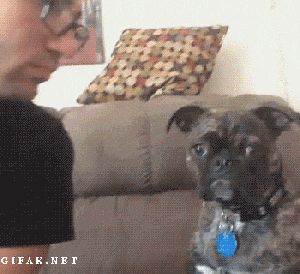The very instant you brought your pooch home, he became family. You fell in love with his cuteness, his energy and his selfless love, so you reward him often with treats and squeeze in playtime everyday. However, as beneficial as daily roughhousing can be for you and your pet, sometimes it can actually be dangerous. Yes dangerous. You know the times when your dog sneezes in your face or when he breaks your skin with his paw? Or, how about the times when he nips you with his dagger-like teeth or how about the days when he insists on cleaning himself on your lap? Although your battle-wounds are always accidental and minimal, your dog can actually transmit diseases into your bloodstream that can generate mild to severe symptoms.
Diseases you can Catch from your Dogs:
- Ringworm: Although its name suggest otherwise, ringworms aren’t actual worms, in fact it is a common fungal infection. Animals and humans that are infected are typically treated with both internal and external anti-fungals.
- Hookworm: Hookworms can be life threatening for dogs and medically devastating for humans. They are parasitic entities that attach themselves to the intestines of its host, feeding off of its nutrients. This infection is treated with anti-parasitics.
- Tapeworm: Dogs and humans can contract tapeworms by ingesting a diseased flea. Tapeworms also attach themselves to the host intestines. Anti-worm is usually the prescribed treatment.
- Brucellosis: Brucellosis is another zoonotic disease that can cause major medical damage for both the infected animal and the human. Treatment usually includes antibiotics.
- Strep Throat: Strep throat is passed on by the exchange of bodily fluids (mouth kisses and sharing of food). Untreated step throat infections can weaken the immune system of the dog and human infected.
Simple Tips for Preventing the Contraction of Zoonotic Diseases:
- Get your dog immunized with the required vaccinations
- Get your animal tested periodically for any potential illness and disease
- Wash your hands after handling your dog in anyway
- Avoid coming in direct contact with your dog’s urine or feces
- Absolutely no mouth kisses or sharing of food
- Clean scratches and nips immidiately with antibacterial soap
- Wash your pet’s bedding often
- Refill your dog’s water with clean water throughout the day
